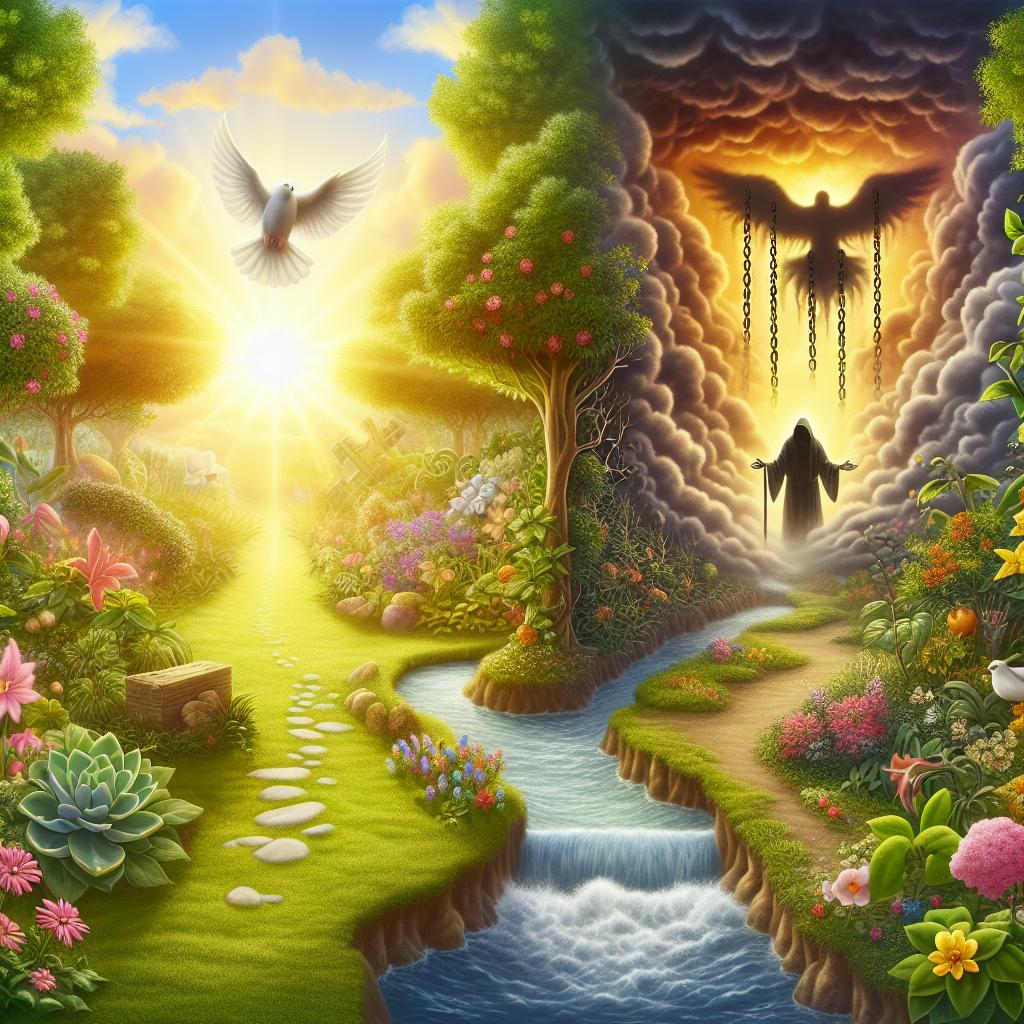
Unveiling the Biologos Pelagian Heresy: A Christian Perspective on Theological Controversies
Published: 25 August 2024
Biologos and the Pelagian Heresy
BioLogos and its promotion of theistic evolution have raised concerns among some Christians due to potential theological implications. One key issue is the denial of an historical Adam, which raises questions about the doctrine of original sin and the need for Christ's sacrifice on the cross. This denial echoes the heresy of Pelagianism, which was condemned by church councils in the past.
Pelagianism was a heretical belief that denied the transmission of Adam's sin and guilt to all humanity. According to this view, humans are born without a sin nature and have the ability to live a sinless life. This undermines the need for Christ's sacrificial death on the cross, as it suggests that humans can achieve salvation on their own merits. Church councils throughout history, including the Councils of Carthage, Ephesus, and Orange, condemned Pelagianism as heresy.
BioLogos, an organization founded by Dr. Francis Collins, promotes theistic evolution and denies the existence of an historical Adam. They suggest that humans descended from a group of individuals who lived around 150,000 years ago, contradicting the biblical account of Adam and Eve as our common ancestors. BioLogos seeks to marginalize the belief in a historical Adam and Eve within the Church.
The denial of an historical Adam has serious theological implications. It undermines the doctrine of original sin and the need for Christ's sacrifice on the cross. Scripture teaches that through Adam's sin, all humanity inherited a sin nature, making us in need of redemption. By denying this reality, BioLogos contradicts a core aspect of the Gospel message.
Theistic evolutionists often argue that science and faith can be reconciled. However, their approach often requires a low view of Scripture and compromises on the interpretation of Genesis. By attempting to fit millions of years of evolution into the biblical account, they undermine the authority and accuracy of God's Word.
Science actually supports the biblical account of a single human origin. Modern genetics provides evidence that all humans descended from a single man and woman, consistent with the biblical account of Adam and Eve. Other geneticists have shown how the data aligns with Scripture, highlighting the compatibility between science and faith.
It is important to remember the lessons of history and not repeat past mistakes. Pelagianism was condemned as heresy for denying the transmission of Adam's sin to all humanity. Theistic evolutionists who deny an historical Adam are taking this heresy further. The battle for truth requires constant teaching and refutation of error. Christians should engage in the defense of biblical truth, both within their homes and within their churches.
In conclusion, BioLogos' denial of an historical Adam raises serious theological concerns. It echoes the heresy of Pelagianism by undermining the need for Christ's sacrifice on the cross. Christians must stand firm on the biblical account of creation, recognizing the compatibility between science and Scripture. By teaching and defending biblical truth, we can combat false teachings and preserve the integrity of the Gospel message.
Why This Matters:
The denial of an historical Adam has significant theological implications. It undermines core doctrines such as original sin and the need for Christ's sacrifice on the cross. Understanding and defending the biblical account of creation is essential for preserving the integrity of the Gospel message.
Think About It:
- How does the denial of an historical Adam impact our understanding of sin and salvation?
- What are some ways we can engage with those who hold different views on creation while staying grounded in biblical truth?
- How can we effectively teach and defend biblical creation within our homes and churches?
